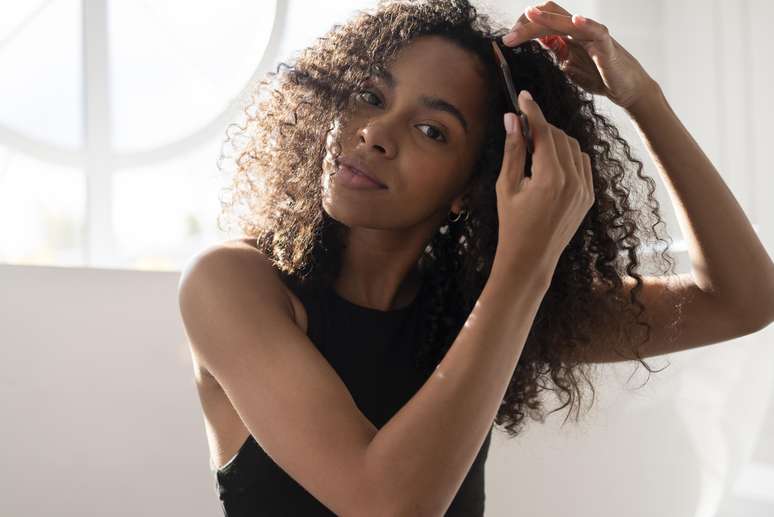The teenager goes viral by expressing his opinion that he doesn’t like big mouths and curly hair. This has a name and it’s not “personal taste”
Those who follow me are already tired of knowing that racism is structural, permeates our subconscious and is nourished in various social areas. The problem that has become latent is that, it seems, with each passing day, people are becoming blatantly racist again.
And to be honest, this doesn’t really surprise me because being racist has generated a lot of engagement for a while now. Not only because of who shares the criticism, but also because many racists identify and recognize themselves in racist discourse. Things like “taste cannot be argued,” “it’s just my opinion,” and freedom of expression are just cowardly ways for racists to explicitly express themselves.
A 15-year-old teenager posted a video on social media in which she talks about the appearance of a black person. She says she doesn’t like big mouths and frizzy hair. She also states that she does not mention anyone’s name and expresses her opinion of her. And “if you think it’s bad, she watches the video,” she says. It’s not really like that, no.
Silly people who think taste is something you’re born with. Taste is 100% a social construction that changes depending on the historical moment in which you live.
In times of food scarcity, a fat person was the ideal of beauty, as fat was a sign of abundance and a good life. Women with wide hips were once the ideal of beauty, because they were seen as the ideal partner for reproduction and even the small penis of Greek statues was made like this because it was a symbol of intelligence and a large penis, synonymous with barbarism.
Talking about Brazil, we can raise some points about why people don’t like black people and the traits that relate to blackness. And there is nothing to be done, we must go back to slavery and remember that for 400 years black people were animals, objects, things, useful only for work, reproduction and punishment.
Everything black was socially rejected, after all no one wanted that place. And it was everything: the religion, the customs, the bodies, the culture and the phenotype. On the other hand, anything white was ideal. The monarchs were white, those studied were white, and most importantly, those who were enslaved were white.
Today, Brazil lived less time without slavery than with slavery, so many scars from that time can still be seen today. Blacks continue to be the majority on the margins, while whites continue to be the wealthiest. This is reflected, for example, in soap opera heartthrobs, princes and princesses and in every product of the culture industry, which is a very strong ally of racism.
On top of that, we also have imperialism that we live in, where everything we import comes from predominantly white societies. So the culture, music, media, information and other things that we consume come from Europe and the United States, which are regions with white people, which produce a lot of content in which white people are protagonists.
Then no! It’s not taste. Not just an opinion. It’s pure racist juice. This is racism that people are not at all interested in opposing. For these people, racism simply means calling black people monkeys. They don’t care about all the nuances of racism because, for many of them, it doesn’t make the slightest difference.
When you see beauty only in soft hair, whiteness and a big sharp nose, it does not mean that you have a taste predetermined by God. This means that you have been so nurtured by the white phenotype, attached to what is beautiful, prosperous and ideal, to reject what opposes it.
And, speaking of Brazil, we have blacks seen as the opposite of whites, which is why it is common to see black rejection summarized as taste when, in reality, it is all a racist structure that aims to leave blacks on the margins of society so that we continue to think that only white has value.
Source: Terra
Rose James is a Gossipify movie and series reviewer known for her in-depth analysis and unique perspective on the latest releases. With a background in film studies, she provides engaging and informative reviews, and keeps readers up to date with industry trends and emerging talents.






